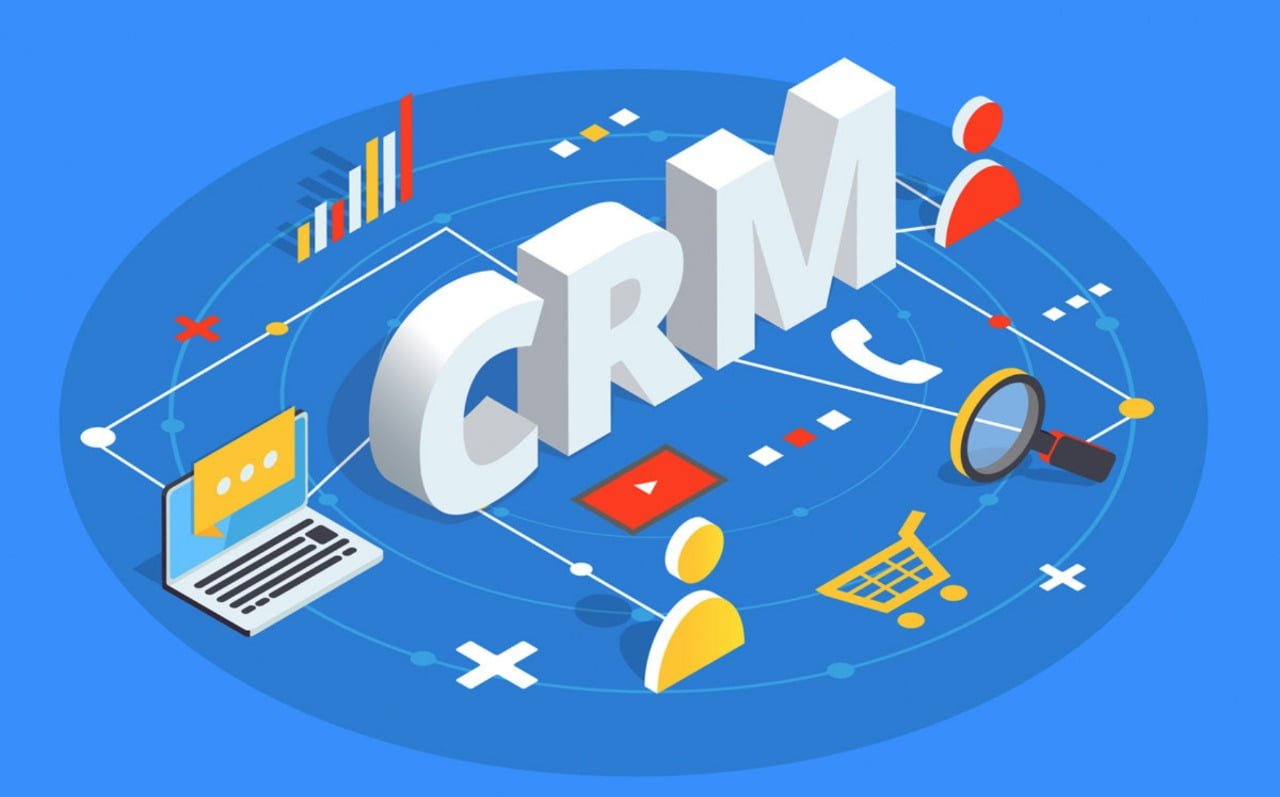About Google calendar with CRM
Google Calendar is a time-management and scheduling calendar service created by Google called Google Calendar. It was made accessible in beta version on April 13, 2006, and as a mobile app for the Android and iOS operating systems in July 2009. Users may add and update events on Google Calendar.
Events can have reminders activated, with options for kind and timing. Additionally, event locations may be established, and users can send invitations to events.
Users have the option to activate or disable the availability of specialized calendars, such as Birthdays, which pulls birthday information from Google contacts and displays birthday cards annually, and Holidays, a regional calendar that shows dates of holidays.
You can easily book meetings and events with Google Calendar, and you can also receive alerts about impending events, so you always know what’s coming up. As a calendar is designed for teams, it is simple to share your schedule with others and create multiple calendars that you and your team may use.
The calendar in Microsoft Outlook is similar in functionality to Google Calendar, a web-based calendar system. It also makes a great partner for Really Simple Systems because it can be readily shared with your coworkers and anybody else who utilizes Google Calendar.
About CRM
All communications and relationships between your company’s customers are managed using a customer relationship management program (CRM). It’s simple to understand the goal: to improve business ties. CRM programs assist businesses in maintaining contact with clients, streamlining procedures, and boosting revenue.
When people use the term “CRM,” they typically mean a CRM system, which is a tool that aids in productivity, contact management, and sales management, among other things. A CRM system enables you to concentrate on the connections that your business has with particular people during your interactions with them, such as clients, service users, coworkers, or suppliers. Finding new clients, winning their business, and maintaining and improving your connection with them are all included in this.
What is CRM used for?
A CRM system offers companies and customers a better way to manage the external interactions and connections that are essential to success, regardless of whether the user works in sales, customer service, business development, recruitment, marketing, or any other area of the firm.
With the help of a CRM tool, the user can manage marketing campaigns, track service issues, identify sales opportunities, and store customer and prospect contact information all in one convenient location. The user can also make data about every customer interaction accessible to anyone at your company who might need it.
Collaboration and productivity may be increased with visibility and simple access to data. Everyone in your company has access to details about customers, such as how they were approached, what they bought, when they most recently did so, how much they spent, and many other things.
CRM may be beneficial to a small firm, where teams frequently need to discover methods to accomplish more with less, and it can assist businesses of all sizes in accelerating business development. You can get a good picture of your customers with a CRM system. With the aid of a straightforward, customizable dashboard, you can see everything in one location.
It can include details on previous interactions you’ve had with a client, the status of their orders, any open customer service tickets, and more.
CRM with Google Calendar
An unbroken workflow is one of the most evident advantages of integrating your CRM with Google Calendar. You can arrange meetings and access crucial information from your CRM all from within your Calendar, saving the user from having to hop between tabs to schedule tasks connected to your contacts and deals.
Users’ CRM Tasks can be immediately updated in their Google Calendar. Integration of Google Calendar and CRM is not simply an IT department job. No of the industry, it’s a shift in the quality of life that may move any firm in the direction it needs to go.
Synchronized information keeps a workday organized, enhances communication, and lessens workplace confusion. Any company that does not take advantage of workplace software integration is running at less than optimal efficiency as more and more software migrates to cloud-based integration.
Benefits of Google Calendar synchronization with CRM
- With Google Calendar synced with CRM, the user can manage all events in one calendar, and the user can also manage meetings and tasks together on one calendar. The user can refer to it to stay updated with the upcoming events, meetings, tasks, and more that are planned for the month and never miss out on important deals.
- With Google Calendar synced with CRM, the user can save everything in one place to save time.
- The user can choose the place to push data and the user can edit the calendar of their choice in real-time and decide if he or she wants to make changes which can be reflected across CRM calendar google calendar or both.
- This could appear to be an obvious benefit at first. There are notifications in every calendar application. The synchronization of the calendar to email, on the other hand, results in notifications for events that could be easily missed. It is simple to arrange a meeting over the phone, have it confirmed by email, and then entirely forget about it. Therefore, reminders are generated for easily forgotten breakfast discussions by having those meetings connected to a calendar at the touch of a button. Additionally, all employees who are linked to the calendar can receive these messages. There is no need for the only reminder to be a word-of-mouth agreement for an afternoon meeting at a restaurant. An appointment reminder on the calendar is more likely to keep a business group on task than a barrage of text reminders because group texts are frequently more bothersome than helpful. Allowing the calendar to handle the challenging task of remembering is crucial for a busy company during the most challenging time of the year.
- An unbroken workflow is one of the most evident advantages of integrating your CRM with Google Calendar. You can arrange meetings and access crucial information from your CRM all from within your Calendar, saving you from having to hop between tabs to schedule tasks connected to your contacts and deals. In other words, you don’t need to leave Google Calendar to access information about a task or contact if you booked a task to call a particular contact. As an alternative, you can directly access your CRM data from Google Calendar. A far more efficient workflow and significantly fewer tab-switching result from having everything accessible in one location.
- By directly adding new meeting attendees to your contacts list from Google Calendar utilizing Google Calendar synced with CRM, you may quickly and conveniently accelerate the development of relationships. For instance, you could quickly add meeting attendees who aren’t already in the Google Calendar meeting invitation if there were a few of them. By doing away with all the laborious contact addition tasks, expanding your contact list becomes considerably easier.
- It might be challenging to maintain your momentum after finishing a call, meeting, or activity, especially if you have to go to another app and manually record a tone of meeting-related notes. However, if your CRM integrates with Google Calendar, you can quickly enter fresh information without ever leaving Gmail or Google Calendar. This enables you to keep up your momentum and advance deals.
Benefits of CRM
- Identify and categorize leads – A CRM system may make it simple and quick for the users to find new leads, add them, and precisely categorize them. By focusing on the right leads, sales can prioritize opportunities that will close transactions, and marketing can spot leads that need further nurturing and turn them into quality leads. If sales and marketing have access to complete, accurate, and centrally managed information about their clients and prospects, they may focus their efforts on the right customers.
- Offer better Customer Support –Today’s customers want rapid, personalized service day or night. With the use of a CRM system, you can provide consumers with the high-quality service they desire. Your agents can readily see what items customers have requested from them and get a record of every interaction, so they can quickly give customers the information they need.
- Improve Products and services – A strong CRM system will collect data from a wide range of sources both inside and outside of your company. This gives you previously unheard-of insights into how your customers think and what they are saying about your company, enabling you to improve your offerings, identify market gaps, and stop issues in their tracks.
Frequently Asked Questions
An unbroken workflow is one of the most evident advantages of integrating your CRM with Google Calendar. You can arrange meetings and access crucial information from your CRM within your Calendar, saving you the time of jumping between tabs to schedule tasks connected to your contacts and deals.
Some of the companies with the largest CRM market shares are Salesforce, Microsoft, and Oracle. According to 74% of respondents, CRM solutions improve their access to consumer information and enable them to provide more individualized service. Within the first five years of operation, 65% of organizations employ CRM systems.
Operational, analytical, and collaborative



